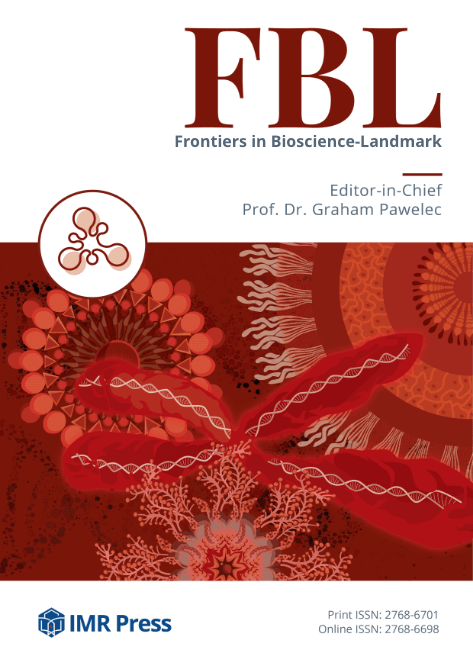Frontiers in Bioscience-Landmark (FBL) is published by IMR Press from Volume 26 Issue 5 (2021). Previous articles were published by another publisher on a subscription basis, and they are hosted by IMR Press on imrpress.com as a courtesy and upon agreement with Frontiers in Bioscience.
*Author to whom correspondence should be addressed.
EGFR and its respective ligands are overexpressed in various tumors and this over-expression correlates with poor prognosis in selected cancers. In addition to direct activation by EGFR autocrine ligands, the large family of G-protein-coupled receptors (GPCRs) has been reported to transactivate EGFR via both ligand-dependent and independent mechanisms. GPCRs can induce the cleavage of membrane-bound EGFR-ligand precursors or directly activate the juxtamembrane tyrosine kinase domain of EGFR. Due to the heterogenous expression of GPCRs in tumors, this form of receptor crosstalk may contribute to the modest clinical responses to EGFR-targeted therapies observed to date. Studies, so far, have indicated that the signaling mechanisms involved in transactivation are specifically influenced by the activated GPCR and the tumor type in question. The progression of colon, lung, breast, head and neck, prostate and ovarian cancers have all been reported to be mediated, at least in part, by GPCR-EGFR crosstalk. Increased understanding of the specific signaling pathways involved in EGFR transactivation by GPCR will facilitate the identification of new biomarkers for molecular targeting strategies.

